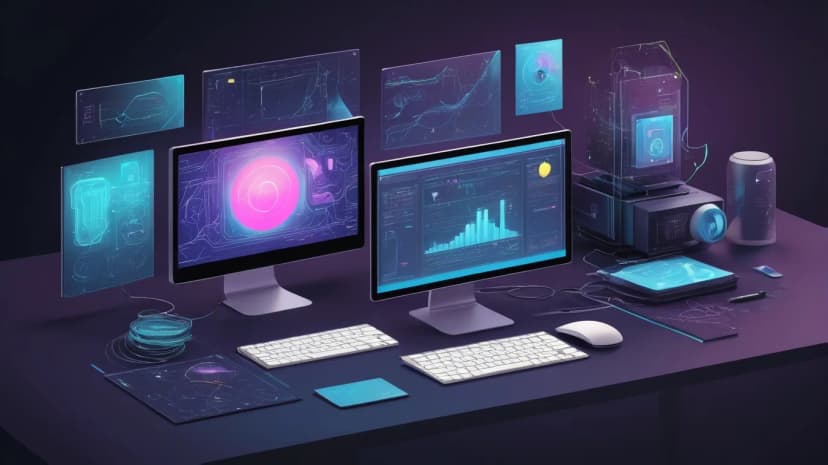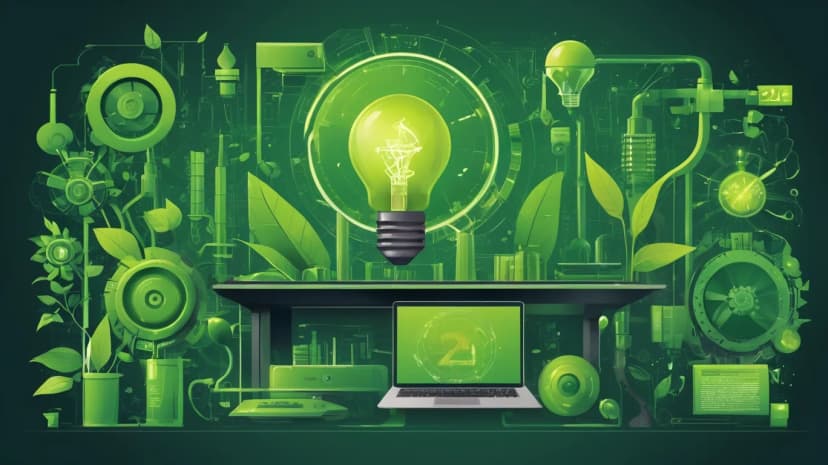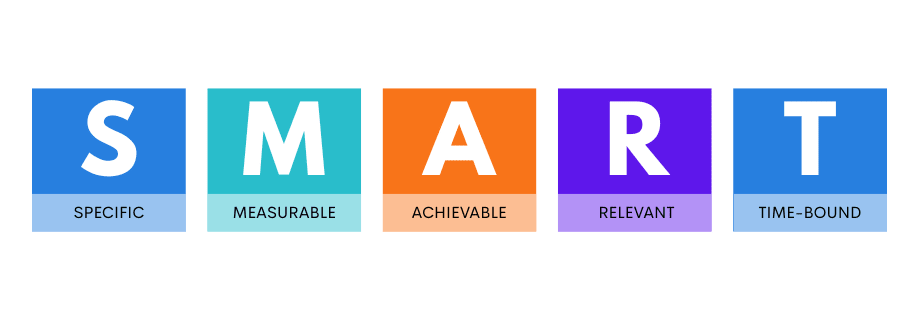Blockchain technology has come a long way since its inception as the foundation for Bitcoin. While cryptocurrency remains its most popular application, blockchain technology goes beyond crypto. From healthcare to supply chain management, blockchain is reforming industries. Let's see its applications with these 11 real-world applications to understand the widespread adaptations. But before that, let's know what exactly is blockchain.
What's Blockchain? Definition in Simple words
The blockchain consists of blocks, which are linked together chronologically to form a chain. Each block comprises a set of transactions the network participants verify, known as nodes.
Another feature of blockchain is security. Once data is recorded on the blockchain, it cannot be altered without consensus from the network participants. This makes it virtually impossible for hackers to access the data.
In a nutshell, blockchain provides a secure and transparent way of transaction without intermediaries or centralised control. These features of this technology make it highly adaptable for different industries. Now, let's understand how it is benefiting various sectors and blockchain beyond cryptocurrency impact.
Blockchain Applications Beyond Cryptocurrency
- Supply Chain Management
Supply chain management is coordinating the activities that occur in producing, distributing and delivering the product or service to a consumer. Now, when we talk about implementing blockchain in supply chain management, there are many benefits to it:
- The first benefit is based on the fundamental property of blockchain technology, which is providing better transparency and keeping records of all transactions. This helps companies track the product while eliminating the chances of fraud.
- Blockchain technology can help reduce costs and improve efficiency by automating many processes within the supply chain.
- The cost will go down substantially by eliminating the cost of intermediaries and administrative heads associated with them.
- Healthcare records management
Medical records contain patient's personal and essential information. They are a critical part of healthcare, and blockchain helps in keeping them safe by:
- The decentralised and cryptographic approach that blockchain provides makes the patient's data immutable. This means that once the data is entered into the blockchain, it is extremely difficult to tamper with or delete it. This is crucial in healthcare records, as no changes occur without authoritative allowance.
- Blockchain improves interoperability by helping pharmacies, labs, physicians, and billings work cohesively. Patient data became more accessible without any risk of breaches.
Learn about AI in Healthcare and Thought Leadership in Healthcare through our detailed blog
- Identity Verification
Identity records are highly confidential and, when altered, can cause heavy damage. Here are the ways blockchain helps in avoiding breaches and improving security:
- Instead of relying on centralised databases, which can be vulnerable to data breaches, blockchain stores identity data across a distributed ledger.
- Data on the blockchain cannot be altered, which means the identity data uploaded on the blockchain remains trustworthy and secure.
- Blockchain allows the authorised parties to carry out transactions without compromising privacy.
- Users will maintain their identity records and can give permissions to those who can access specific details without any intermediaries.
- Voting System
Keeping the principles of blockchain, the voting process can be smooth, transparent and reliable. Integrating blockchain into the voting system can help have a non-biased voting process by:
- Each vote is recorded as a transaction in blockchain, ensuring that all transactions are visible to all users and keeping the voting process transparent and trustworthy.
- Once a vote is registered, the record cannot be changed, making it impossible to tamper with the election results.
- Blockchain uses cryptographic techniques to ensure safety. All users are given a private key for secure access to the voting platform. Moreover, each vote is encrypted to ensure user privacy and confidentiality.
- Blockchain can also help reduce the cost of the voting process by eliminating the costs of physical ballets, polling stations, and manual vote counting.
- Blockchain in real estate transactions
Blockchain can be used in real estate transactions to improve efficiency, transparency and security.
- Blockchain can create a transparent, immutable ledger of property ownership, which will reduce disputes and make it hassle-free to verify the legitimacy of property titles.
- Smart contracts can automatically execute agreements when the predefined conditions are met. This will diminish the use of mediators like lawyers or brokers and speed up the buying process.
- Blockchain offers a secure and safe option for transactions in real estate.
- Food Safety
Blockchain technology has immense potential to improve the food safety by improving the following:
- It helps in better traceability of food items from farms to fork. If any food issue occurs, you can identify it easily and reduce the impact.
- There is better prevention of food fraud. Because the data is immutable, it is impossible to tamper with it, which helps enhance protection against adulterated food items.
- Blockchain will also improve compliance and accountability. We can automate documentation and save certification online, which will help in conducting audits and preparing safety reports.
- Gaming and virtual goods
Another distinctive use of blockchain is in the gaming world. Due to the massive adoption of AR/VR and ML, the gaming world has also taken a new shape. Blockchain can:
- Help the players truly own the in-game accessories in the form of non-fungible tokens. They have the facility to even trade, sell, or transfer goods in the gaming ecosystem.
- Blockchain ensures fair trading, preventing issues like duplication fraud. This will build a trustworthy gaming ecosystem.
- With blockchain, these virtual goods can be exchanged across multiple games or platforms, making them accessible to a broader audience.
- Digital Advertising
Who would have imagined that blockchain would help in digital advertising as well? Well, not only can it help, but it has the power to transform how this digital space works.
- Blockchain will help users improve transparency by allowing advertisers to track their ad expenses in real time and verify whether they have invested correctly.
- Blockchain creates an immutable ledger that tracks every transaction and impression. This way, advertisers can ensure that content is published on legitimate websites and reduce fraudulent activities.
- As we have automated agreements in the real estate industry, we can also apply them here.
- Energy trading
Blockchain is transforming energy trading through peer-to-peer trading. This medium helps individuals, businesses, and grid operators buy, sell, and trade energy more efficiently.
- Blockchain allows individuals or businesses to trade energy without intermediaries. For instance, an individual can sell excessive solar energy to his neighbours from his solar panels. The Brooklyn Microgrid Project, where residents can trade solar energy locally, offers the same use case.
- Blockchain will also ensure the maintenance of certificates like Renewable energy certificates and keep track of carbon emissions. This way, we can really make energy trading environment-friendly.
- Blockchain will also help individuals or companies track down the source of their energy. This will allow them to make smarter decisions about selecting between renewable and non-renewable energy sources.
- Anti-Money Laundering
Money laundering is a global issue in which criminals disguise illegal funds and make them look legitimate. Traditional AML Processes often involve manual monitoring and siloed data systems, which can be extremely time-consuming and prone to errors. Blockchain can also help reduce these errors and risks.
- Blockchain's ledger is tamper-proof, ensuring that transactions cannot be altered or deleted. This allows auditors to be reliable in determining the source and record of the transactions.
- Blockchain can help construct shared KYC platforms, which will allow financial institutions to access and update customer data securely to provide secure financial services.
- Smart contracts on blockchains can instantly flag any suspicious activity against AML regulations.
- Intellectual property protection
Blockchain is now being explored as a solution to protecting intellectual property. If you have published a study, taken copyrights, or patented anything, blockchain will help protect those. It is an excellent resource for thought leaders to preserve their unique ideas.
- Creators can timestamp their work on blockchain to prove they registered or created the IP at a specific time. This allows them to track and verify the ownership of that particular document.
- Terms of use, royalties, payment conditions—everything can be fed into a contract, which, once the conditions are met, will convert into an agreement.
- Blockchain will prevent counterfeiting or plagiarism of the content or the resource.
Apart from these, blockchain can be used in various other cases as well like:
- Charitable donations
- Cross-border payments
- Education and certificates
- Decentralized finance
- Agriculture
- Insurance claims
- Art provenance
- Humanitarian aid
- Transportation and logistics
- Cloud storage
- Healthcare supply chain
- Retail loyalty programs and
- Legal contracts
Pros and Cons of Blockchain
Now that we have discovered blockchain's use cases let's understand its pros and cons and how feasible it is for the existing world.
Pros:
- The primary benefit is immutability, meaning records cannot be altered or tampered with.
- There is a high level of transparency, as the records are publicly available to everyone.
- Reduces paperwork and improves the efficiency of licensing processes.
- Minimise the reliability of intermediaries, which eventually results in cost deduction.
Cons:
- Governments and courts must recognise blockchain records as valid evidence.
- Lack of awareness and technical knowledge may hinder the widespread adoption of the technology.
- Managing large-scale IP registrations can pose technical issues
Blockchain can be instrumental in providing a safe space for various industries. Many companies and organisations are using it for better safety like:
- KodakONE: It is a blockchain platform for photographers to monetize and protect their images.
- Lantmäteriet (Sweden): Uses blockchain to safeguard land and intellectual property rights.
- Ascribe: A platform for artists to keep track of their work's use and ownership.
Blockchain has a bright future in countries adapting technology and fair practices across sectors, beyond cryptocurrency especially in smart contracts and decentralized apps—core elements of Web 3 ecosystems. This also gives tech thought leaders a chance to come to the forefront and talk about blockchain as a prominent platform for these use cases and much more. You can start by improving your knowledge across this area and then sharing your ideas on how the technology will impact your sector and beyond. You can take help of self-curated research papers to build authority. The Editorial Institute can help you create those researches and exhibit your research ideas hassle-free.





